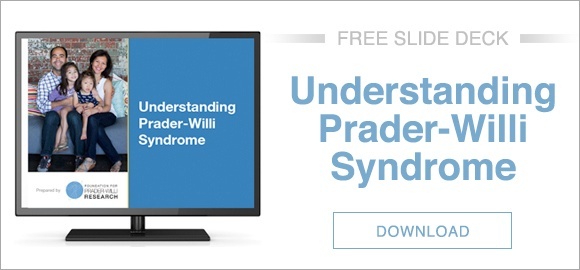A special contribution by guest blogger Courtney Smith
A letter to Prader-Willi siblings:
 Recently, a woman asked if I would be willing to speak with her teenage daughter who was struggling having a brother with Prader-Willi Syndrome. Of course I proudly said yes. However, this request got me thinking. This is not the first time a PWS parent has commented on the wonderful bond that my brother and I have formed.
Recently, a woman asked if I would be willing to speak with her teenage daughter who was struggling having a brother with Prader-Willi Syndrome. Of course I proudly said yes. However, this request got me thinking. This is not the first time a PWS parent has commented on the wonderful bond that my brother and I have formed.
Parents quite often mention that they wish their children had the relationship that my brother and I share. Little known secret: we weren’t always this way. It wasn’t always hugs and laughter, head rubs and foot massages.
It isn’t easy growing up with a sibling who has PWS. I can remember feeling like he stole all of my parent’s attention, as I am sure most of you have felt the same. It certainly isn’t easy being a teenager with locks on the refrigerator and alarms on every door and window in the house. There was a time when I was jealous of him, embarrassed of him, and not always nice to him.I was in the third grade the first time someone ever made fun of my brother in front of me. That was the first time I realized no matter what, he was my brother. People often ask me what it is like to have a brother with PWS or a brother who is mentally challenged. My answer is always, “it’s the same”. It’s normal, it’s life. He isn’t my brother with PWS, he’s just my brother. We would fight over television shows, and steal each other’s things, but at the same time share secrets and always had a friend to play with.
With all of that being said, having a sibling with PWS isn’t the same as a “normal” sibling relationship. It’s better. Being the brother or sister to a child with PWS is something special, a position you were chosen for. You were chosen to be the example, a role-model. Your title as brother or sister gives you something to stand for, and someone to stand-up for. You take on the position of best friend, and one day, care taker.
I know that right now this relationship is hard. Trust me, I know what it is like to get embarrassed in a restaurant because your brother is having a complete melt down. Or not getting to go trick-or-treating because your sister can’t be exposed to that much candy. But one day, you will wake up and realize that your sibling with PWS has taught you more about life than you could ever learn from a teacher, a text book, or a television show.
Having a brother with PWS gave me a different perspective on the world. My brother has taught me that this world isn’t fair, that we aren’t all given an even hand, but it’s what you do with that hand that molds you into the person that you are going to be. My brother taught me patience, and kindness, what it means to be resilient, and understanding. How to stand for something and how to love with an unconditional heart.
Your brother or sister with PWS will make you a better person. They will change your perspective. Honor that, cherish that, and allow yourself to share that perspective with the rest of the world.
— Courtney Smith
Courtney loves in Myrtle Beach, South Carolina, and is a Licensed Professional Counselor specializing in children and adolescent counseling. Her 22 year old younger brother has Prader-Willi Syndrome.








